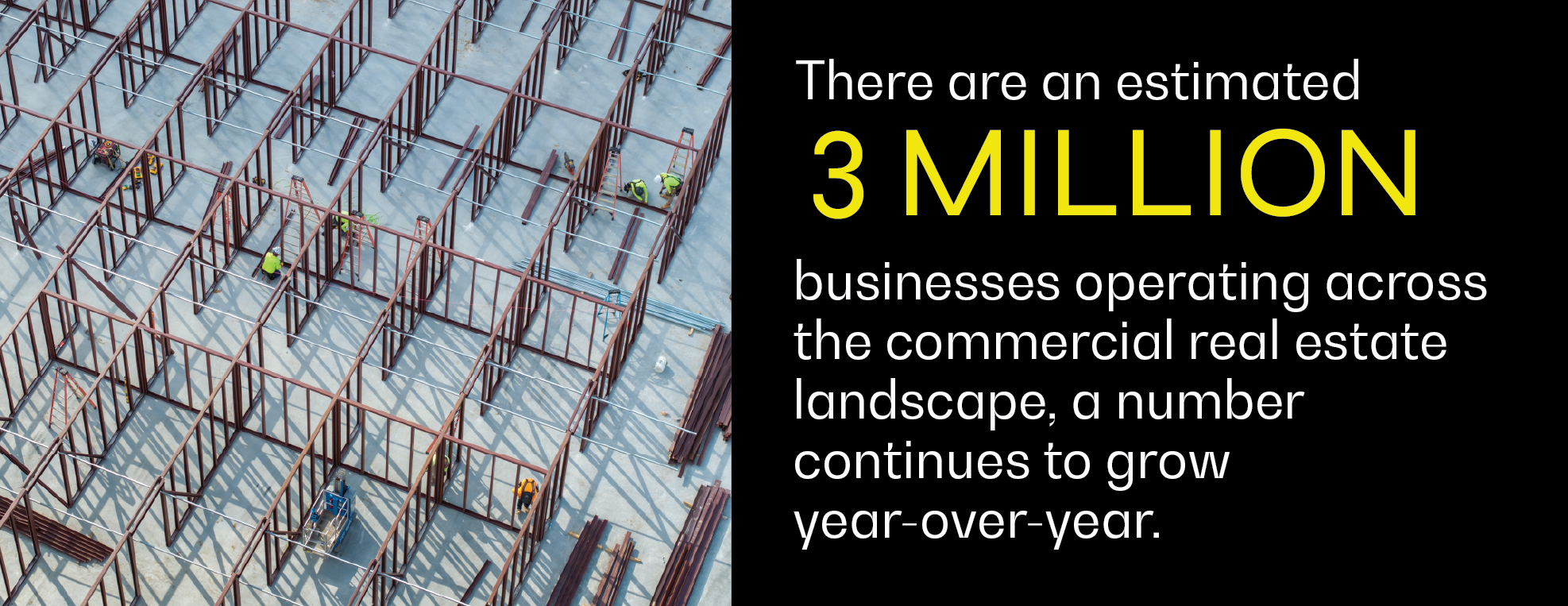
Despite the steady recovery of urban commercial property values 1 since the height of the pandemic, significant challenges remain.2
The distressed commercial property market in the U.S. reached a decade high at the end of 2024, and roughly $2 trillion in CRE loans are set to reach maturity by the end of 2026.
Corporate consolidation, rising insurance costs, limited refinancing options, and interest rates stuck around 4.0%-4.25%.3
Public relations is an increasingly important lever in the larger marketing ecosystem for building brand credibility, highlighting portfolio resilience, reaching investors and tenants, and growing transaction volume. But a press release on its own won't be the difference between a fully-leased asset and an upside-down one; a well planned and executed PR campaign plays the long game and works in concert with all of a real estate business' communications channels.
PR is a vehicle for growing awareness of your brand through earned media placements that position you in front of key decision makers. Interviews, trend pieces, contributed articles, and property spotlights all help strengthen your market standing and searchability.
Local papers will often get ahold of your news faster than you can send it. Whether it's an exciting multifamily housing initiative or a polarizing industrial development, PR serves as a bridge for communicating your business' goals and values. Transparency creates trust, and trust is essential for rallying community support, securing investors, and attracting clients.
PR is all about storytelling, and a good PR specialist will bring yours to life. A PR specialist will help you build property-specific campaigns and storylines, select highest-impact visuals, identify trends to weigh in on, shape talking points, and advise on how to best support these narratives with targeted advertising campaigns, social media content, and blog posts.

Not every issue in real estate is a crisis—most are what we call cringe moments. But whether it's a market update lacking contextual data, poorly worded listing, or legal dispute, a successful PR response requires a measured, human approach that acknowledges, adapts, and moves forward. Proactive reputation management can increase the likelihood that response is well received.
A PR specialist or agency will support you on the front end—establishing "searchability" for executive leadership, building strong reporter relationships—and the back—fielding inbound requests, preparing statements, developing "now what?" plans.
Important! It's very difficult to retract quotes or take down articles that have already published; in fact, many publications have strict rules about the circumstances in which they'll oblige. Correcting minor article mistakes and addressing inaccurate claims, however, can help to prevent them from being reprinted when the not-so-flattering spotlight hits.
There are an estimated three million businesses operating across the commercial real estate landscape, and that number continues to grow year-over-year. Imagine if every industry reporter received a story pitch from all three million of them each week. Now imagine what their inbox looks like by Tuesday afternoon!
A good PR campaign will lead with your differentiators: Why you? And why now?
And for everything else? Social media platforms, such as LinkedIn and X, and other owned channels like your company's website, are great places to amplify promotional marketing material, recap internal meetings and events, and share updates to organizational functions.




If you're hiring a PR specialist or retaining an agency to execute in the final days running up to a launch or announcement, you're going to miss a key window for multichannel marketing and media engagement.
For one, coverage takes time. As much as a month or more could lapse between an initial interview and the final, published story. Exclusives and embargos—which, for some top tier outlets, are important strategies to consider—can further draw out the process. The sooner you have a PR partner on board to help you navigate this landscape, the better prepared you'll be to turn strategy into success.
At UpSpring, we have experience working with stakeholders at every stage in the deal pipeline—from investors, credit solutions providers, and developers to architects, owners, operators, and end-users. Our unique cross-section of the industry translates to end-to-end intel on campaigns and PR strategies that will move the needle most for your business; we know how to target your audience, because we already know where they are and how best to reach them.
There are many amazing marketing experts, content writers, and PR pros in real estate—we have the pleasure of getting to work alongside them today! But even the very best in the business can only wear so many hats at one time.
An agency will function as an extension of your internal team, freeing up bandwidth and helping your marketing engine scale meaningfully. An agency that specializes in real estate, specifically, already speaks your language and can even more quickly help you navigate market dynamics and media.
Your front-line agency contacts are also backed by a company-wide army of seasoned professionals, which creates a knowledge and skill base that's hard to match in-house dollar-for-dollar.
A good real estate PR agency will thoroughly assess your unique goals, industry context, and competitive positioning to develop a personalized strategy. At UpSpring, we'll work with you to develop key performance indicators (KPIs) that are aligned with your overarching goals to ensure you're getting the most out of the PR engagement.
Example KPIs for real estate businesses include:
The real estate business is all about strategic partnerships, and a PR team that knows the ins-and-outs of the industry is an important one to have at the ready.


